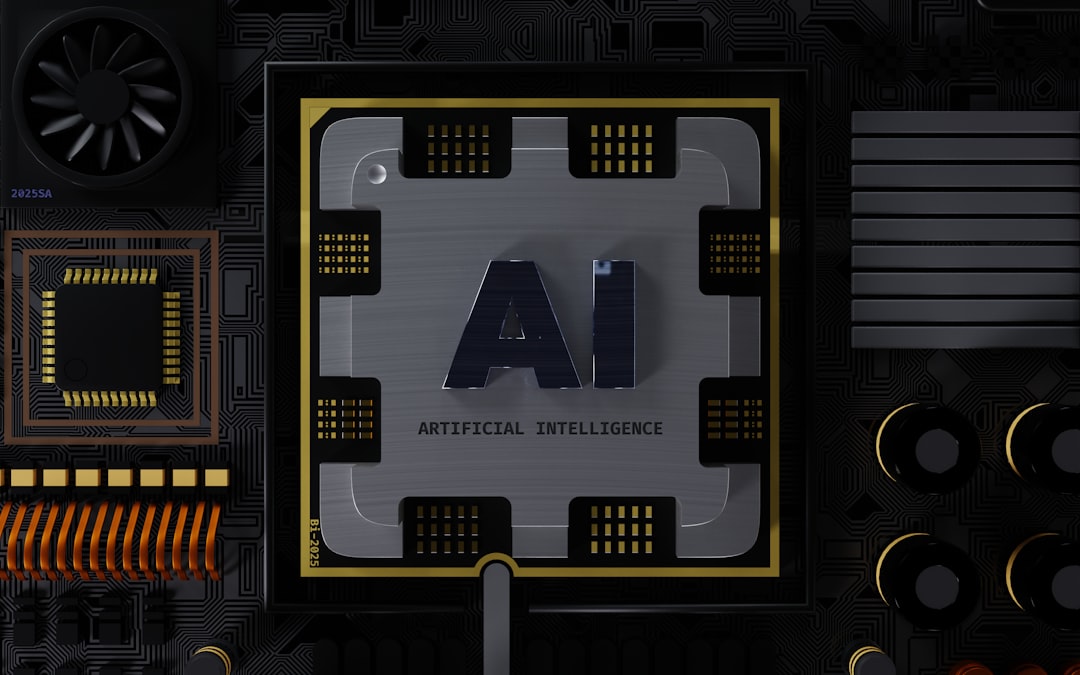The age of Artificial Intelligence is no longer a futuristic concept; it’s our present reality. From automating routine tasks to generating creative content, AI is rapidly reshaping industries and redefining job roles. It’s easy to feel a little overwhelmed, maybe even a bit anxious, about what this means for our careers and our future. But here’s the exciting truth: while AI excels at data processing and repetitive tasks, it clarifies the irreplaceable value of uniquely human capabilities. The future isn’t about humans vs. AI; it’s about human-AI collaboration, where our distinct skills become our greatest assets. Ready to discover how you can stay ahead? Let’s dive in! 😊
The Shifting Landscape: Why Human Skills Matter More Than Ever 🤔
The impact of AI on the job market is undeniable. Reports indicate that by 2025, approximately 85 million jobs could be displaced globally, particularly in roles like administrative support and customer service. However, the same reports also predict the creation of around 170 million new jobs, leading to a net gain of 78 million positions. This isn’t a story of replacement, but rather one of transformation and augmentation. As AI takes over the mundane, repetitive tasks, the demand for skills that machines cannot replicate is skyrocketing. In fact, a Workday global survey found that 83% of employees believe AI will make uniquely human skills more critical.
This shift means that “soft skills” are no longer just a bonus; they are becoming foundational differentiators for career success. The World Economic Forum’s 2025 Human-Centric AI brief emphasizes adaptability, judgment, empathy, and creativity as defining human advantages. These are the skills that will enable us to innovate, lead, and navigate complex problems in ways AI simply can’t. It’s about combining technical fluency with human depth.
A recent study found that 92% of executives believe soft skills are as important, if not more so, than technical skills in an AI-driven future. This highlights a significant shift in what employers are looking for!
The Top 10 Human Skills for the AI Era 📊
So, what exactly are these indispensable human skills? Let’s break down the abilities that will keep you indispensable in an AI-powered world:
1. Critical Thinking & Complex Problem Solving
AI can process vast amounts of data and identify patterns, but it struggles with nuance, contextual judgment, and navigating complex “grey areas”. Humans are still essential for designing efficient systems, troubleshooting unexpected issues, and evaluating the criticality of risks that AI tools might introduce. The ability to analyze, question, and connect ideas is what separates those who use AI from those who create and shape the future.
2. Creativity & Innovation
While generative AI can produce initial concepts and automate routine creative tasks, it cannot match human creativity and vision. AI can be a co-creator, amplifying what’s possible, but the deeply personal and unique aspects of creation remain in human hands. The World Economic Forum predicts the creation of 69 million new jobs by 2027 due to technological advancements, many of which will require innovative thinking.
3. Emotional Intelligence & Empathy
AI lacks the ability to truly understand emotions, build trust, and navigate complex human interactions. Emotional intelligence (EQ) is crucial for managing relationships, leading teams, resolving conflicts, and fostering a human connection that AI cannot replicate. Leaders with high EQ can guide their teams through AI transitions, ensuring a productive and harmonious work environment. Research shows that every point increase in emotional intelligence can add $1,300 to an annual salary.
4. Adaptability & Learning Agility
The pace of technological change is accelerating, and the “half-life of skills” is now estimated to be just five years. Workers who learn how to learn—and apply it across domains—will remain indispensable. The ability to quickly adapt to new information, new tools, and new ways of thinking is paramount. This means embracing a mindset of continuous, lifelong learning.
5. Effective Communication
Even with AI tools assisting in drafting emails and summarizing meetings, strong communication skills are more important than ever. Humans need to clearly articulate technical ideas, interpret AI’s findings, and craft narratives that resonate with people. Effective communicators bring humanity to the forefront, fostering authenticity and empathy in interactions.
6. Collaboration & Teamwork
Humanity’s ability to collaborate, cooperate, and work together is one of our greatest strengths. Human-AI collaboration offers numerous benefits, combining human creativity and critical thinking with AI’s speed and data processing. Effective teamwork is essential for implementing AI in the workplace without disrupting human dynamics.
7. Ethical Reasoning & Judgment
Decisions about how technology is used, where to draw the line on workplace monitoring, or how to weigh risks and benefits cannot be handed off to machines. Emotionally intelligent leaders recognize AI’s potential biases and make ethical decisions about its deployment. Ethical literacy ensures that AI tools are used responsibly and transparently.
8. Digital Literacy & AI Fluency (Human-Centric)
While AI can automate tasks, understanding how to effectively use AI tools and interpret their outputs is crucial. This isn’t just about technical skills; it’s about leveraging AI to enhance human performance and expertise. AI literacy skills, like prompt engineering, have seen a 177% increase in LinkedIn members adding them since 2023.
9. Leadership & Influence
AI can provide data and insights, but it cannot inspire, motivate, or lead teams through ambiguity and change. Human leaders are needed to foster trust, manage conflict, and make high-stakes decisions under pressure. Strategic vision, empathy, and change management are crucial behavioral skills for future leaders.
10. Intercultural Competence
As AI facilitates global collaboration and remote work, the ability to understand and navigate diverse cultural contexts becomes increasingly important. AI can assist with translation, but understanding cultural nuances, non-verbal cues, and differing communication styles remains a uniquely human strength. This skill fosters inclusivity and effective global teamwork.
While AI can automate many tasks, it’s crucial to remember that it can also reflect biases present in its training data. Human oversight and ethical reasoning are vital to mitigate these biases and ensure fair and responsible AI deployment.
Key Checkpoints: Don’t Forget These! 📌
You’ve come a long way! Since this article is packed with information, let me quickly highlight the most crucial takeaways. Please keep these three points in mind:
-
✅
AI is a Partner, Not a Replacement:
The future of work is about human-AI collaboration, leveraging the strengths of both to achieve greater efficiency and innovation. -
✅
Human Skills are Your Superpower:
Skills like emotional intelligence, creativity, and critical thinking are becoming the most valuable assets in the workforce. -
✅
Lifelong Learning is Non-Negotiable:
Embrace continuous learning and adaptability to stay relevant and thrive in a rapidly evolving technological landscape.
Real-World Example: The AI-Augmented Marketing Team 👩💼👨💻
Let’s imagine a modern marketing team navigating the AI era. Sarah, the Creative Director, used to spend hours brainstorming campaign ideas and overseeing the initial drafts of ad copy. Now, with generative AI tools, her team can quickly produce multiple variations of ad copy and visual concepts in minutes. This frees up Sarah to focus on what truly differentiates her: strategic vision, understanding market nuances, and providing the human touch that resonates with consumers.
AI automates the “how,” allowing humans to excel at the “why” and “what if.” It enhances productivity and allows creative professionals to focus on more strategic and innovative aspects of their projects.
Practical Application: Upskilling for the Future 📚
So, how do you cultivate these essential skills? It’s not about going back to school for another degree, but rather embracing continuous learning and practical application. Here’s a simple framework:
Your 3-Step Upskilling Plan
- 1) Identify Your Gaps: Reflect on which of the 10 skills you feel weakest in. Consider asking for feedback from colleagues or mentors.
- 2) Seek Targeted Learning: Utilize online courses (Coursera, edX, LinkedIn Learning), workshops, or even AI-powered learning platforms to develop specific skills. For example, practice communication with AI chatbots.
- 3) Apply and Iterate: Actively look for opportunities to apply these skills in your daily work. Embrace feedback loops and learn from both successes and failures. Growth through discomfort is a human superpower.
Example Skill Development: Emotional Intelligence
1) Self-Awareness: Cultivate self-awareness by recognizing how AI affects your decision-making and interactions. Ask yourself if you’re using AI to enhance human connection or replace it.
2) Empathy Building: Practice active listening and seek to understand diverse perspectives. Engage in team projects that require navigating different viewpoints.
3) Ethical AI Use: Prioritize responsible AI implementation by questioning biases, ensuring transparency, and keeping human values at the center of decision-making.
Remember, the goal isn’t to become an AI expert in every technical sense, but to become an expert in being human, augmented by AI. This proactive approach will ensure you remain a valuable asset in any industry.

Conclusion: Your Future in the AI Era 📝
The AI era is not something to fear, but an incredible opportunity to redefine what it means to be human in the workforce. By doubling down on our innate human skills—critical thinking, creativity, emotional intelligence, adaptability, communication, collaboration, ethical reasoning, human-centric digital literacy, leadership, and intercultural competence—we can ensure our continued relevance and success. These aren’t just skills for survival; they are the keys to innovation, meaningful work, and a fulfilling career.
Embrace lifelong learning, view AI as a powerful tool to augment your abilities, and focus on cultivating these uniquely human strengths. The future of work is a dynamic partnership between humans and AI, and your human skills are your ultimate competitive advantage. What skills are you focusing on developing? Share your thoughts in the comments below! 😊
AI Era Survival Kit: Key Skills
Frequently Asked Questions ❓
